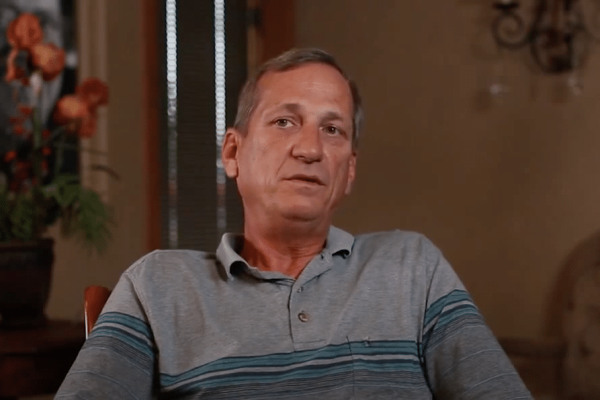
I’ve been a dentist in New Albany, Indiana, for over 30 years. I spent many hours in a dental chair as a kid because I was born with a partial cleft palate. I knew what it was like having painful dental experiences and being self-conscious about my appearance. It was very traumatic, and I wanted to become a dentist to change those experiences for my patients. I already knew how injections, surgery, and noises felt in my mouth.
You see, I’ve lived the pain most doctors can only read about.
Every day I sit with people who have put off going to the dentist for years because they’re afraid of being hurt, afraid the treatments may drag on or afraid it just won’t work. You WILL be comfortable throughout the entire procedure. I’ve helped thousands of people solve difficult complex dental problems…usually in just a few short visits, and with IV Sedation, virtually 100% PAIN FREE.
I know how it feels. And I know I can help.
You no longer have to live with the frustration of missing teeth, denture problems, dental fear and not being able to chew your food. You can have good-looking teeth, a smile you’re proud of and chew anything you want!
We offer a Lifetime Warranty. Teeth for Life™!
Dental Implants and IV Sedation in New Albany, IN
Solutions to All of Your Dental ProblemsIf missing or damaged teeth restrain you from a hearty laugh or prevent you from relishing your favorite foods, you’re not alone. Millions of Americans face this problem daily, and it can be hard to confront not just the physical discomfort but also the psychological strain that comes with an incomplete smile or damaged teeth.
For many years, dental patients had to settle for answers that are only a temporary solution. Leading to recurrent pain, inconvenience and multiple visits to the dentist. Say goodbye to the constant worry and discomfort with your smile and ability to chew your favorite foods.
Dental implants provide a permanent and natural-looking solution for missing or damaged teeth. They can give your smile a stunning makeover and restore your ability to bite, chew, and speak comfortably. At New Albany Implants we utilize The to offer our patients the highest levels of care with Shorter Treatment Time!
Take the first step towards Teeth for Life™. Book a consultation with New Albany Implants today.
"*" indicates required fields
Our Dental Implants Services
Inquire About Our “Lifetime Warranty” and 40 Years Of Experience. Learn More About What We Do.Our history of replacing teeth with artificial teeth spans over four decades, during which we have transformed countless smiles with our dedicated and personalized approach to restorative dentistry.
How Are We Different?
Exceptional Oral Care and Revamped Smiles

Our patients have often struggled with traditional dentures, bridgework, or temporary fixes for missing teeth for decades. These solutions can be uncomfortable, unstable, and even harmful to adjacent healthy teeth. Dental implants from New Albany Implants provide a natural feeling smile, and they are a true paradigm shift in restorative dental techniques. Lost teeth don’t just rob you of your beautiful smile but may also affect your speaking and eating functionality. Issues that initially feel minor may lead to significant long-term dental problems. Our highly qualified team at New Albany Implants has helped countless individuals reclaim their lives with confident smiles, optimal dental functionality, and improved overall quality of life.

Signs You Need Dental Implant
Dental implants are ideal for those with natural teeth that are failing or missing, leading to discomfort or trouble chewing. Furthermore, they’re perfect for patients who are tired of unstable, uncomfortable dentures or those who find themselves avoiding social situations because of their smiles.
With dental implants, our patients can eat anything they want, enjoying improved oral health and a renewed sense of confidence. In a single day, utilizing IV Sedation, we’ll extract any failing teeth, place all your implants, and fit you with beautiful temporary teeth. You’ll leave our office the same day with a stunning new smile!

Get Your Beautiful Smile Back with Dental Implants from New Albany Implants
Start your journey to a confident and healthy smile with New Albany Implants. Our expert team is committed to providing cutting-edge dental implant services to transform your appearance and improve your overall well-being. Don’t wait any longer to reclaim the smile you’ve always dreamed of—contact us for an appointment today and experience the life-changing impact of our dental implants.






